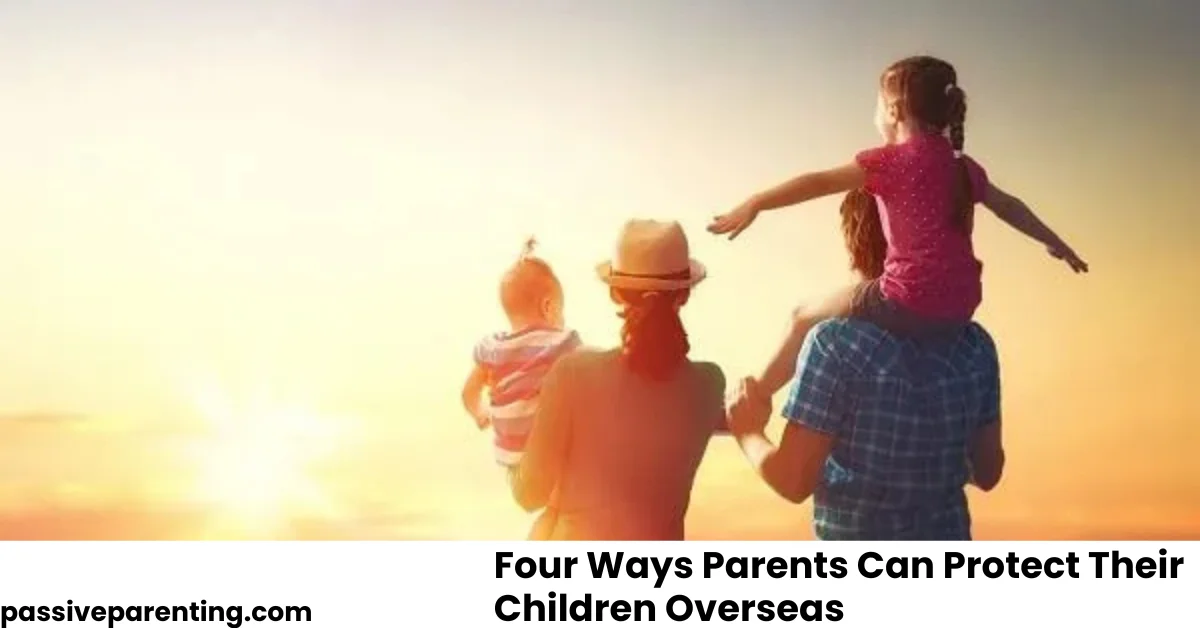Parenting can bring up a variety of unique challenges. While this usually ranges from ensuring they eat their veggies to sticking to a strict sleep schedule, new difficulties can occur when you begin planning a trip abroad. All of a sudden, you will be entering an unfamiliar country, which will be a completely new environment for your kids.
Children are often resilient, but travelling can pose specific issues, especially when it comes to health and safety. You will want to protect your kids from dangers overseas, and being adequately prepared is a good way to accomplish this. Thankfully, this post explains four ways parents can protect their children when in a foreign country.
Research Your Destination
Being well-informed before travelling with children can ensure everyone is sufficiently protected against location-specific risks, such as crime, dangerous areas, and medical issues. If you can obtain all of the necessary information before your departure date, you can prepare your kids for local customs and laws. This knowledge can also enable you to better plan for emergencies in the event of the unexpected.
When selecting your destination, use verified government resources for research. Travel advisories should be checked by consulting your country’s foreign affairs or state department website, which will display the latest health information, safety warnings, and travel advice. You can also enroll in your country’s traveler registration program, such as the U.S. Smart Traveler Enrollment Program, to ensure you are contacted in the event of an emergency.
The next aspect to research is the most common health risks in the country you will be travelling to with your family. These risks may range from heatstroke to diseases such as malaria. You should consult with your family doctor to determine if your children need any vaccinations or medications before you jet off.
Purchase Travel Insurance
While no one wants to imagine things going wrong when travelling, it is a possibility, and you must be prepared. Being adequately prepared for the unexpected can ensure your children remain healthy and safe during your travels. One way to prepare yourself and your family is by obtaining a reputable travel insurance policy.
Travel insurance plans typically provide financial protection against unexpected issues, such as cancelled or delayed flights, lost or stolen luggage, and medical emergencies, that may occur before or during a trip. While you will need to purchase a policy, it can help prevent you from facing significant bills for medical care or losses due to travel disruptions. However, the level of coverage provided by an insurance plan can vary, so you must conduct thorough research.
Purchasing travel insurance that covers your entire family should be prioritized, although this will depend on your specific plans. For example, if you plan to travel frequently, you might opt for an annual multi-trip policy. It is also crucial to declare any pre-existing medical conditions you or your children have, to ensure that any claims related to those conditions are authorized.
Teach Safety Skills
As they will be in an unfamiliar environment, it is a good idea to educate them on ways to prevent danger. The best way to accomplish this is by teaching your kids the necessary safety skills, from establishing a buddy system to pointing out new local traffic rules. These skills can help build confidence and independence, both of which are crucial throughout one’s life.
Preparing your children in this way should begin before you head off on your trip. The research you have previously completed can help you understand the different rules and risks associated with your destination. This knowledge can then be used to teach your children how to behave on vacation and to follow any emergency plans you create, such as having a designated meeting point in case of separation or identifying safe adults.
Some parents may choose to create contact cards or ID bracelets that include their name, phone number, and hotel address. Children should always have these with them. However, there are also technological alternatives, like AirTags, that can be used to monitor a child’s location, particularly in busy areas.
Any rules you do set should be reinforced throughout your trip. You must keep a close eye on your kids and ensure they follow the safety rules you have established at all times, as these guidelines will help keep them safe.
Respect the Culture
Different countries have their own culture and customs, and these need to be followed to avoid conflicts and misunderstandings from arising. By showing respect for your destination’s local behaviors and customers, your family can feel more secure and supported within this unfamiliar community.
But your children’s personal development will also benefit from this. They will learn about new cultures, enabling them to see the world from different perspectives, which can lead to greater empathy and tolerance. Their global perspective will expand significantly by engaging with unique customs, languages, and traditions, especially if you set a positive example by doing the same.
How you and your children respect the culture of your destination will vary depending on the country you are traveling to. If there are local dress codes, you must select the appropriate attire and be aware of regional customs regarding greetings and social etiquette.
To conclude, travelling with children can be exciting, but there are certain risks to be aware of when entering an unfamiliar country. Parents should make the necessary preparations to keep their children safe when traveling, as outlined in this post.




